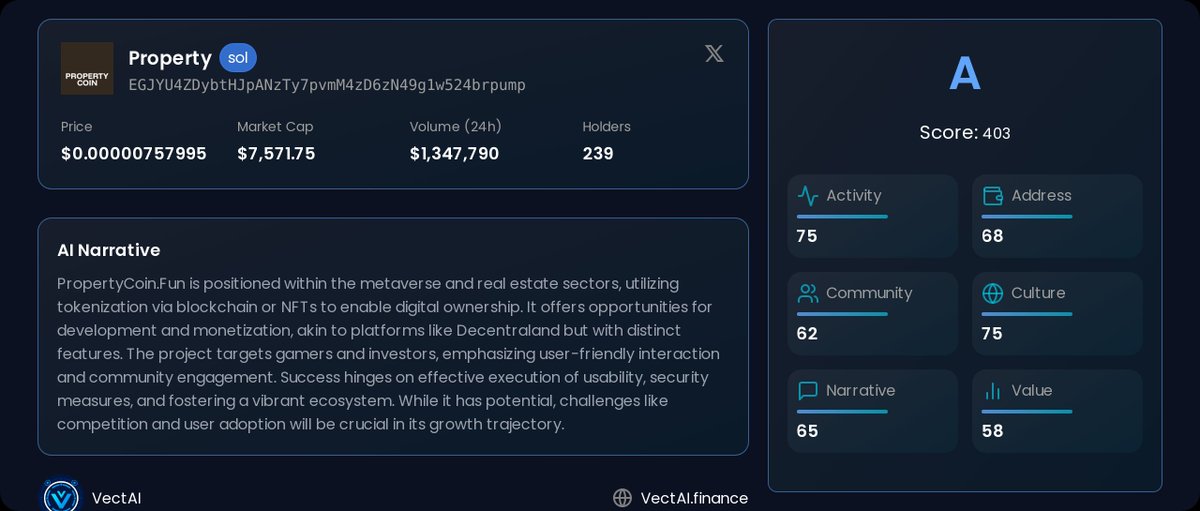“`markdown
Decoding the Future: Tokenized Real Estate, AI, and Blockchain
The Dawn of a New Investment Era
Imagine owning a fraction of a luxury apartment in Paris, a bustling shopping mall in Tokyo, or a sprawling vineyard in Napa Valley—all from the comfort of your home. This isn’t a distant dream but a rapidly evolving reality, powered by the convergence of tokenized real estate, artificial intelligence (AI), and blockchain technology. These innovations are reshaping property investment and ownership, making it more accessible, transparent, and efficient than ever before.
Tokenized Real Estate: Breaking Down Barriers
Traditional real estate investment has long been a playground for the wealthy, characterized by high entry costs, complex legal processes, and limited liquidity. Tokenization is changing this landscape by representing real estate assets as digital tokens on a blockchain. These tokens signify fractional ownership, allowing individuals to invest smaller amounts and diversify their portfolios with ease.
Accessibility and Affordability
Tokenization democratizes real estate investment by significantly lowering the minimum investment threshold. Instead of needing hundreds of thousands of dollars, investors can purchase a fraction of a property for a much smaller amount. This opens up the market to a broader audience, including those who previously couldn’t afford to invest in real estate.
Increased Liquidity
Traditional real estate is notoriously illiquid. Selling a property can take months, even years. Tokenized real estate offers the potential for increased liquidity, as tokens can be traded on exchanges, enabling faster transactions. This liquidity is a game-changer for investors who want to quickly enter or exit the market.
Transparency and Security
Blockchain technology provides a transparent and secure ledger for tracking ownership and transactions. This reduces the risk of fraud and increases trust in the system. Every transaction is recorded on the blockchain, making it easily verifiable and tamper-proof.
AI: The Intelligent Real Estate Analyst
AI is revolutionizing various aspects of the real estate industry, from property valuation to market analysis. When combined with tokenized real estate, AI can provide investors with data-driven insights to make informed decisions.
Predictive Analytics
AI algorithms can analyze vast amounts of data, including market trends, economic indicators, and property data, to predict future price movements and identify promising investment opportunities. Platforms like Token Metrics utilize AI to provide crypto trading and research data, which can be adapted to analyze tokenized real estate [3].
Automated Valuation
AI can automate property valuation, providing accurate and up-to-date assessments based on various factors. This reduces the need for costly appraisals and streamlines the investment process. Automated valuation models can consider a wide range of variables, from location and size to market conditions and historical data, to provide a comprehensive assessment.
Risk Management
AI can assess the risk associated with different tokenized real estate investments, helping investors make informed decisions and manage their portfolios effectively. By analyzing historical data and market trends, AI can identify potential risks and provide recommendations to mitigate them.
Blockchain: The Foundation of Trust and Efficiency
Blockchain technology serves as the bedrock for tokenized real estate, providing a secure, transparent, and efficient platform for managing ownership and transactions.
Immutable Record
Blockchain creates an immutable record of all transactions, ensuring that ownership is easily verifiable and cannot be tampered with. This reduces the risk of fraud and disputes, providing a level of security that traditional real estate transactions often lack.
Smart Contracts
Smart contracts automate many of the processes involved in real estate transactions, such as rent collection, distribution of profits, and transfer of ownership. This streamlines operations and reduces administrative costs. Smart contracts are self-executing contracts with the terms of the agreement directly written into code, ensuring that all parties adhere to the agreed-upon terms.
Decentralization
Blockchain’s decentralized nature eliminates the need for intermediaries, such as banks and title companies, reducing transaction costs and increasing efficiency [6]. This decentralization also enhances transparency, as all transactions are recorded on a public ledger that can be accessed by anyone.
Challenges and Opportunities
While the convergence of tokenized real estate, AI, and blockchain holds immense promise, several challenges need to be addressed for widespread adoption.
Regulatory Uncertainty
The regulatory landscape for tokenized real estate is still evolving, and there is a need for clear and consistent regulations to provide legal certainty and protect investors. As governments and regulatory bodies grapple with the implications of these new technologies, investors must stay informed about the legal framework governing tokenized real estate.
Market Volatility
The value of tokenized real estate can be volatile, influenced by factors such as market sentiment and regulatory changes. Investors need to be aware of these risks and invest accordingly. Diversification and risk management strategies are essential to navigate the volatility of the tokenized real estate market.
Technological Adoption
Widespread adoption of tokenized real estate requires greater awareness and understanding of the underlying technology. Education and outreach are essential to encourage participation. As more people become familiar with the benefits of tokenized real estate, the market is likely to grow and become more robust.
The ROI Calculator: A Glimpse into the Future
Tools like the Tokenized Real Estate ROI Calculator exemplify the practical applications of these technologies. Such calculators allow investors to analyze potential returns, rental yields, and overall profitability of blockchain-based real estate investments [1]. These tools empower individuals to make data-driven decisions, further democratizing the real estate investment landscape.
A New Era of Property Ownership
The fusion of tokenized real estate, AI, and blockchain is ushering in a new era of property ownership. By lowering barriers to entry, increasing liquidity, and enhancing transparency, these technologies are democratizing real estate investment and empowering individuals to participate in a market that was once reserved for the wealthy elite. As these technologies continue to evolve, we can expect to see even greater innovation and disruption in the real estate industry. The future of property ownership is here, and it’s tokenized, intelligent, and decentralized.
Sources:
“`

